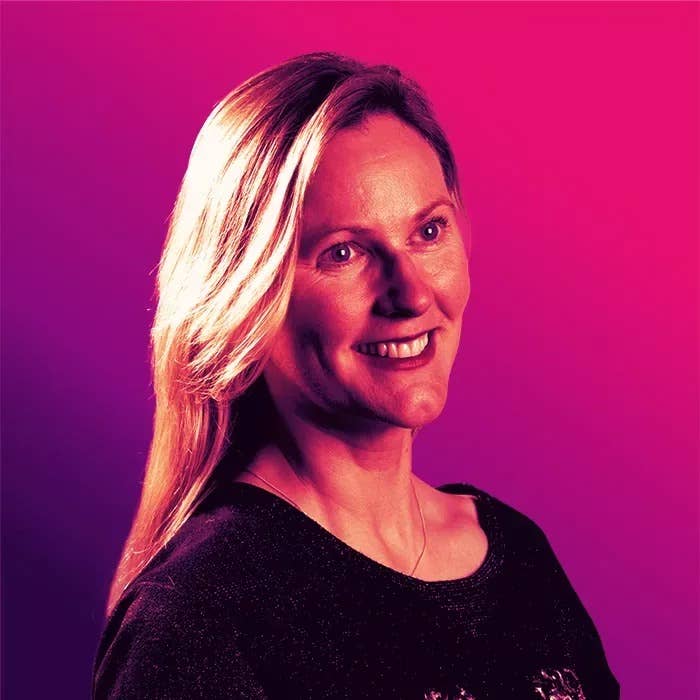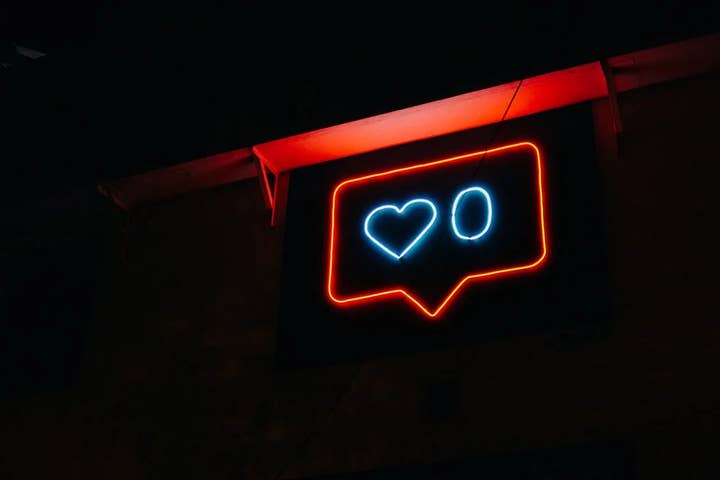How to get your indie game noticed
PR and marketing experts offer their expertise and advice for indie developers in this GI Live Online panel
With an endless sea of new games launching on Steam alone, it's no longer enough to simply make a good game, you have to make sure players know about it and are hyped for it. From its announcement, to the run-up to launch, and even after launch, getting a game noticed is the role of PR, whether in-house, via a publisher, or through agencies.
For GI Live, we assembled a panel of games PR professionals with a range of experience between them.
There's Emily Britt, head of communications at Diva Agency with 25 years of experience in PR including in-house, Caroline Miller, founder and managing director of Indigo Pearl and another industry veteran, Rachel Macpherson, PR manager at Neonhive with a journalist background, and Harry Mitchell, Blazing Griffin's in-house community manager who also used to work in games media.
For indie developers who haven't thought about PR before or are not sure how to use it effectively for their games, here's what we learned from this panel.
Announcing a game
As the acronym stands for public relations, the first part of PR you might expect is when a game is announced to the public for the first time. In reality, there's a lot that needs to be prepared before getting to this stage.
"The first thing that you need to do is just get very, very organised," says Miller. "Make a plan and just have everything that you're going to need, ready to hand, because what happens when you start to do PR, you'll suddenly be asked to provide stuff like assets, comment, and when you're scrambling for stuff like that you can miss opportunities."
"Don't panic something out the door, just look at what you've got, look at what you want to achieve, and then make your plan"Emily Britt, Diva Agency
In essence, getting a developer organised is what a PR agency does, ensuring you have everything ready, and a plan for how this information will be disseminated to your audience over time and through various forms of media that can move very quickly.
But just because PR can be a fast-moving machine, it doesn't mean developers should rush their announcement.
"Don't panic something out the door, just look at what you've got, look at what you want to achieve, and then make your plan," Britt adds. "You need to know who you are and what your game is, and then define that, then put it out and make sure your assets -- your press release, your logo, screenshots, a trailer -- are ready."
Getting organised for an announcement may take time, so Macpherson says that it's helpful to approach a PR agency as early as possible.
"The earlier you can capture attention from the press, from your audience, from potential buyers, and the more time you have to plan things, the easier it is for PR to be able to pitch it consistently to press and to potential buyers, especially when it has a really nice clear message," she explains.
From an in-house perspective, Mitchell adds that PR should also be picking up things in advance, such as a cool mechanic or gameplay that can be shown during an announcement. He does however temper expectations, saying that not every announcement will go the way you expect, and that the first impression needn't be the be-all end-all.
"There's going to be a process after that where you can make it up," he says. "The online world right now is so diverse and strange that there's lots of ways you can pick up where things maybe didn't go right hour one but you can definitely let it continue that momentum."
Building a community
Some of the most successful games, especially the surprise successes, have been through good old-fashioned word of mouth, which is often more effective than any PR campaign.
"These are your evangelists -- an endorsement from them is so much more powerful than a company saying, 'The game I made is great'," says Miller. "If you look at some of the really runaway successes, one of the things that they've all had in common have been an organic, enthusiastic, fun and invested community from the get go."
But just because a community is organic doesn't mean there can't be ways for a developer to leverage its support, which is where community management comes in, whether that's giving a game its own Discord servers for fans to join, or as the community manager being effectively the face of the studio communicating directly with the community.

"What's cool about community management is that you're building a little core base," explains Mitchell. "You're gradually building up a lump of people that are interested and you can then show that to when an announcement date or a release date or something cool rolls around. You have that core audience that are interested, and you can use it as a launchpad."
Having a community manager as the face of a game or studio is also important to act as a kind of buffer, as Mitchell adds that "straight-to-the-source developers can get messy," especially when related to elements that might lead to anger and frustration, such as bugs or an update that proves unpopular.
Growing and maintaining a relationship with the community can also be intense and difficult to keep up with as a developer, which is why it's worth having a community manager responsible for this.
It shouldn't however mean dumping everything on the community manager, as Britt adds that it's important for whoever's managing the community to establish boundaries.
PR when cash-strapped
For tiny developers on a shoestring, PR may just be something that they can't afford, although some would argue that marketing should be included in any game's budget, which can start from around £2,500 in the UK.
Agencies who work with indies such as Neonhive or Indigo Pearl aren't strangers to talking to cash-strapped developers, so they're still able to help with advice.
"The great thing about working with an agency is that there's so many different people and services, so if you have a clear idea of exactly how much money you can spend on PR and exactly what you're looking out for from this service, then just even having a conversation with an agency to get a steer on what you can and can't afford is always a great idea," says Macpherson.
Britt adds: "Don't be embarrassed about a really small budget, just pick up the phone. [Games] PR people love games, that's why they do it. So it's very unlikely you won't be given at least the time of day and some advice, even for a very small budget."
"Don't be embarrassed about a really small budget, just pick up the phone"Emily Britt, Diva Agency
While some developers might consider just handling their own PR, that can be a very all-consuming process taking up time on development. Nonetheless, if you can't afford PR at all, there's at least one thing you can do if you're using Steam.
"You can do so much on Steam to optimise your game, it's the biggest thing you can do, just concentrate on making your Steam page the best it can be," says Miller. "The one tiny piece of advice I give everyone who doesn't have enough money for a PR agency is [to] just look at what other people [with successful games on Steam] are doing. Have a look at their layout, have a look at how they've written, look at their videos, their cadence on Steam."
Just like an announcement email or press release, a Steam page should be snappy that can hook players in a short space of time, with Mitchell focusing especially on the platform's bio section.
"Make sure [your game's] little bio is compact as heck, and will hit the mark immediately," he explains. "But make sure that long description isn't just a lump of text because people will just scroll right past it. It has to be visual and interesting."
Beyond that, screenshots and effective tags are also important considerations when optimising a Steam page.
"You're not just appealing to players, you're helping the Steam algorithm understand who you are and what you do, so they're presenting you to players who are going to get your game," Miller adds.
Which platforms to market a game
With so many platforms to showcase a game, from social media like Twitter and TikTok to streaming services like Twitch and YouTube, as well as traditional games media on websites or print magazines, it can be intimidating to know where to start. And if you're on a budget, you'll want to prioritise which is going to be the most effective way to get your game out to your target audience.
To begin with the newest and sometimes more cost-effective method, TikTok is a platform that Mitchell believes should always be taken seriously by developers.

"I've seen tiny developers have such amazing growth on TikTok," he says. "I'd recommend things you can reproduce or repurpose for different things, like on Instagram Reels or YouTube Shorts, or also copy across Twitter and Facebook. But TikTok as a source is something that has its own bizarre rules, its own little world that works for it, and when you hit that you can reach audiences that you never really would have before."
While TikTok has increased its video length, it's still primarily effective for showing bite-sized portions of a game with a laser focus but with potentially huge reach.
"What we tend to really love at TikTok is that sometimes when you go to a TikToker with a specific game, they will come back with a concept for a TikTok video that is completely different from what you would get from a standard streamer or a sponsored YouTuber," says Macpherson. "It's a lot of fun to try and think of different ways in which to portray different games through different platforms."
Ultimately, the platform you decide to best showcase your game may also depend on the type of game you're making and the kind of message that you want to get out there, such as its visual style, its mechanics, or its storytelling.
Macpherson continues: "There's nuances between Twitch and Youtube as well. There are games that will translate really well to Twitch but just won't work as well on YouTube, and vice versa. When it comes to influencers, you're always thinking of high audience numbers or what their audience is like, but when you sit back and think about how a game will come across on screen with someone watching it, this game could have really good art, but the story maybe isn't as impactful, so it would be great to watch but maybe not for two hours."
"You can afford an agency, that is one thing that just makes that process a lot easier"Caroline Miller, Indigo Pearl
Reaching out to traditional media outlets is its own art as well, especially when connecting with journalists, although that relationship and rapport is another strength that an agency has.
"Every so often we can say to them, 'Look at this really small niche kind of cute/weird game', and they'll look at it at least, because it's coming from a PR person who they talk to over and over again," says Miller. "It's hard if you're a developer who all of a sudden has to make all these contacts with journalists, so if you can afford an agency, that is one thing that just makes that process a lot easier."
For developers reaching out on their own, Britt adds that research is necessary, as journalists tend to specialise in certain genres, so you don't want to pitch a racing game to someone who's mostly into survival horror, for example.
"Try to put absolutely everything in the first sentence of the email -- this is what you're going to get out of it, these are all the important dates, here are all the assets that you might need," she continues. "Don't leave loads of questions unanswered because they'll just ignore you for someone who wrote something that was a bit firmer. You are not the only person that day sending a pitch, so it helps if yours has a clear title and a clear set of information."

As a former journalist, Mitchell notes that Twitter is a popular social media platform for journalists.
"If you can get attractive GIFs and interesting things about your game on people's feeds, you'll find that stuff will spread and people will end up connecting with you and get your name either noticed or covered," he says.
The other important thing about media coverage is that it's not just about covering the game in a review, so you have to think about what else you can offer an outlet.
"When you're an indie developer, you have to think a bit more outside the box in terms of how you want to portray your game and what kind of coverage you want to get out of it," Macpherson explains. "It's a wee bit more of a way for people to see the developer and see what the developer themselves are saying but seeing what the story behind the game is."
Britt adds: "When you pitch the interview, don't just say, 'Do you want to interview the developer?' You need to say, 'Do you want to interview the developer about these things?', to make it clear what they'll get out of it."
Maintaining momentum in early access
Finally, there's the added challenge for developers working in an early access model and want their PR momentum to grow when the road to the 1.0 launch can be anywhere from 12 months to far longer. This can apply to both journalists and your community.
"Early access games are quite complicated, because you really do need to be coming back to journalists with new things to talk about, you can't continually pitch them the same thing," says Macpherson. "As a journalist, you're trying to talk about things that haven't necessarily been discussed before or want to introduce something new to their readers. Maintain that contact but with new things or a new opportunity to discuss the game or with the developer."

Miller adds: "Sometimes there is a bit of fatigue, having talked about this for 12 months already. It's definitely a challenge for PR to bring everyone with them and still have that moment of like 'tada!' at launch. [PR] needs to manage client expectations, and just make sure you have some original good, new stuff to say at launch."
While a community is in essence your own hype machine, Mitchell says it's also important to keep players interested and involved.
"That can be an email newsletter that has behind the scenes content, or saying 'Here's what we added, here's what we're changing, here's what we messed up along the way, and then we actually want to fix and go back on'," he explains.
"It's getting people involved in that process. That's what Discord is great for, that way you have players who are active in it as it goes along. Then you have your own little fanfare custom-ready for launch, because you have those players that have been waiting for this for a long time. They can then be the word of mouth and spread the hype."
More GamesIndustry.biz Academy guides to Selling Games
Our guides to making money from video games cover various aspects of the publishing process, whether you're a young game developer about to start a new project or an industry veteran:


